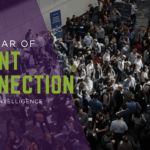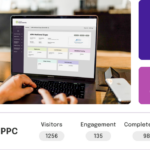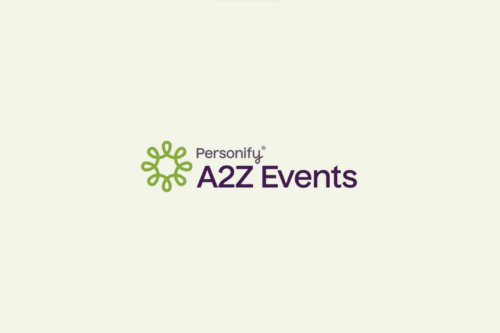The plethora of information you can collect when people register for an event is extensive: their company data, demographics, interests, the list goes on. With the availability of all that information, it can be daunting to determine how effective your registration process is.
Establishing a set of KPIs (Key Performance Indicators) and other metrics helps to identify the strengths and gaps of your process. Why does this matter? Registration information and your registration website’s performance data can shape how the event is produced currently and in the future.
Measuring and understanding data can help you better engage with your attendees, exhibitors, and speakers before, during, and after your event. It can shape efforts to increase attendance. And, most importantly, it allows you to measure your Return on Investment (ROI).
Let’s look at what KPIs and metrics you can monitor to get you started on outlining the data to collect and learning how to use it.
Website Analytics
-
Acquisition source
How are attendees getting to your registration page to begin with? Email marketing, digital ads, your website, a speaker’s own organic promotion? What pages are getting the most interest from users, and what does this tell you? Understanding which call-to-actions are convincing your audience to register will give you insight into how to speak to them, and what event features to lean into.
-
Form conversion rate
How many people complete their registration or start the registration process but fail to finish registering? A high conversion means the registration process is simple, marketing is firing on all cylinders, and your offering and price point are in sync.
Attendee Demographics
-
Who’s coming? Who’s not? How many? Where are they from geographically? What are their business interests? What’s their experience level? Depending on the questions you ask, your attendee information can help you tailor the current event to your attendees, market the event to a specific audience, and go after more targeted sponsorships.
Break-out Session Interest
-
Pageviews on specific session information
What are people expressing an interest in learning about? Who do they want to hear speaking? What format of session (lecture, panel, workshop, etc.) is most popular? Drilling down into your session data provides valuable insight into their interests. This data also helps identify scheduling conflicts.
-
Sign-ups for sessions
What are people looking into but not signing up for? What “skill level” of expertise is attracting the most attendees? What times are the most popular? Besides allowing you to ensure you’ve got the proper room (or bandwidth) to accommodate the audience, more people signing up for a specific session tells you that the format, schedule and speaker(s) are ideal for the audience.
If people aren’t signing up for very many sessions during the morning or afternoon, look at potential reasons. You may have simultaneous sessions that attract the same audience, or a scheduling pain point (reschedule those early morning sessions after your late-night gala!).
Event Engagement
-
Attendance at the event and at sessions
What percentage of people who sign up for a session or event actually attend? Do they stay for the entire length of the event? If you have a big “no-show” problem, the event you planned may not have been considered critical by your registrant. Sending a simple survey to them to find out why they chose not to go can help you plan your resources better.
It can also help you set the expectation of the speakers or panelists more realistically. They’ll likely prepare a talk for 10 people differently than one for 300. When more people show up for an event than planned, you have a lot more options: having multiple sessions on the same topic or with the same format; breaking the topic into smaller bites; or even charging additional premiums for the sessions that had standing room only.
-
Attendee engagement level
Have they signed up for more sessions as the event went on, and if so, on what and by whom? What was the social media saturation of the event or session?
An engaged audience is a happy audience. Through event registration data, you can identify the topics that are piquing the interest of your attendees. If people are leaving events or sessions long before they’re completed, you can revise schedules or advise presenters about topics or formats that haven’t connected with the audiences. When people sign up for future sessions or events while attending the current event, you know you’ve engaged them. Learning when they made that decision tells you what inspired them to do so.







